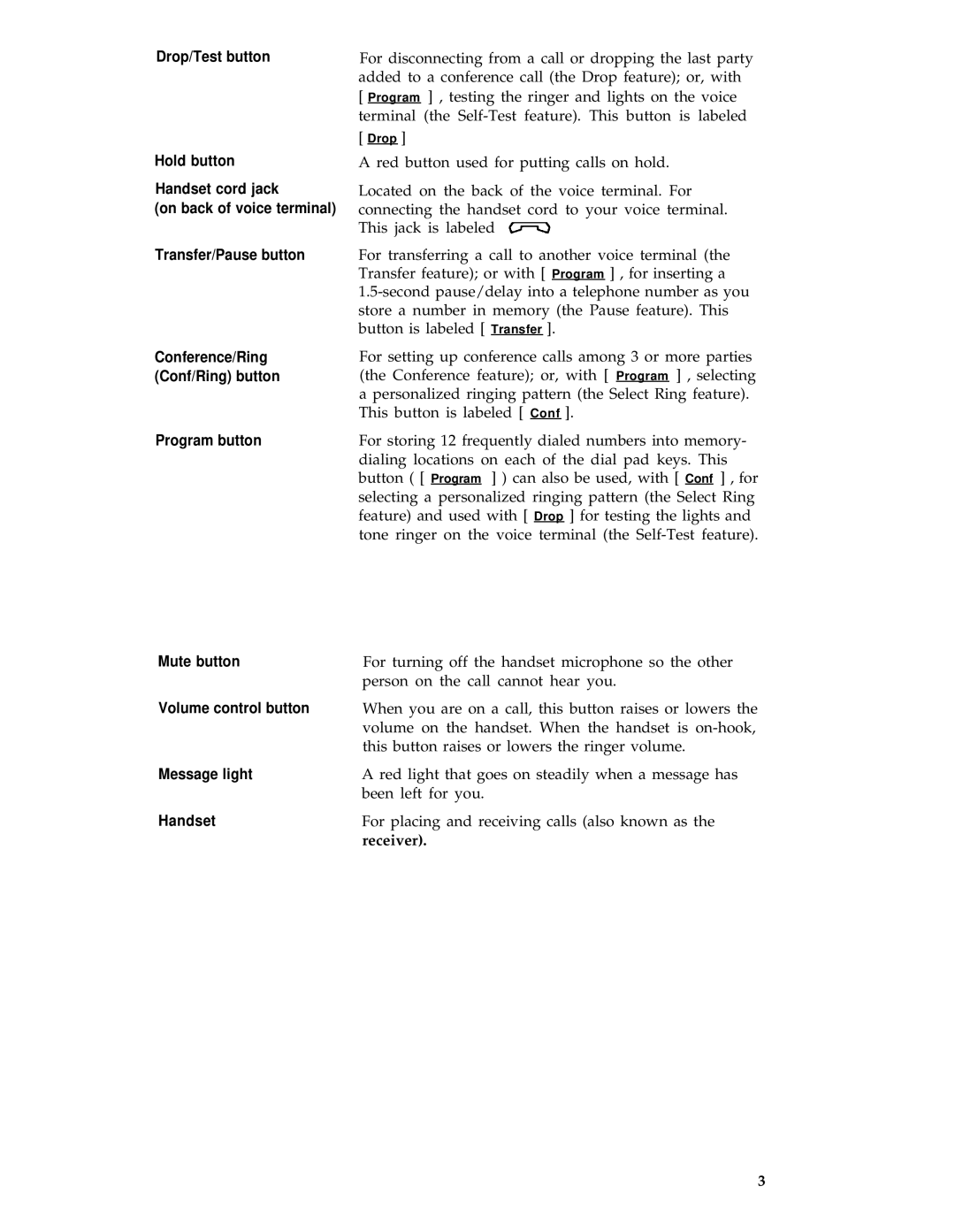Drop/Test button
Hold button
Handset cord jack
(on back of voice terminal)
Transfer/Pause button
Conference/Ring (Conf/Ring) button
Program button
Mute button
Volume control button
Message light
Handset
For disconnecting from a call or dropping the last party added to a conference call (the Drop feature); or, with [ Program ] , testing the ringer and lights on the voice terminal (the
[ Drop ]
A red button used for putting calls on hold.
Located on the back of the voice terminal. For connecting the handset cord to your voice terminal. This jack is labeled ![]()
For transferring a call to another voice terminal (the Transfer feature); or with [ Program ] , for inserting a
For setting up conference calls among 3 or more parties (the Conference feature); or, with [ Program ] , selecting a personalized ringing pattern (the Select Ring feature). This button is labeled [ Conf ].
For storing 12 frequently dialed numbers into memory- dialing locations on each of the dial pad keys. This button ( [ Program ] ) can also be used, with [ Conf ] , for selecting a personalized ringing pattern (the Select Ring feature) and used with [ Drop ] for testing the lights and tone ringer on the voice terminal (the
For turning off the handset microphone so the other person on the call cannot hear you.
When you are on a call, this button raises or lowers the volume on the handset. When the handset is
A red light that goes on steadily when a message has been left for you.
For placing and receiving calls (also known as the
receiver).
3
